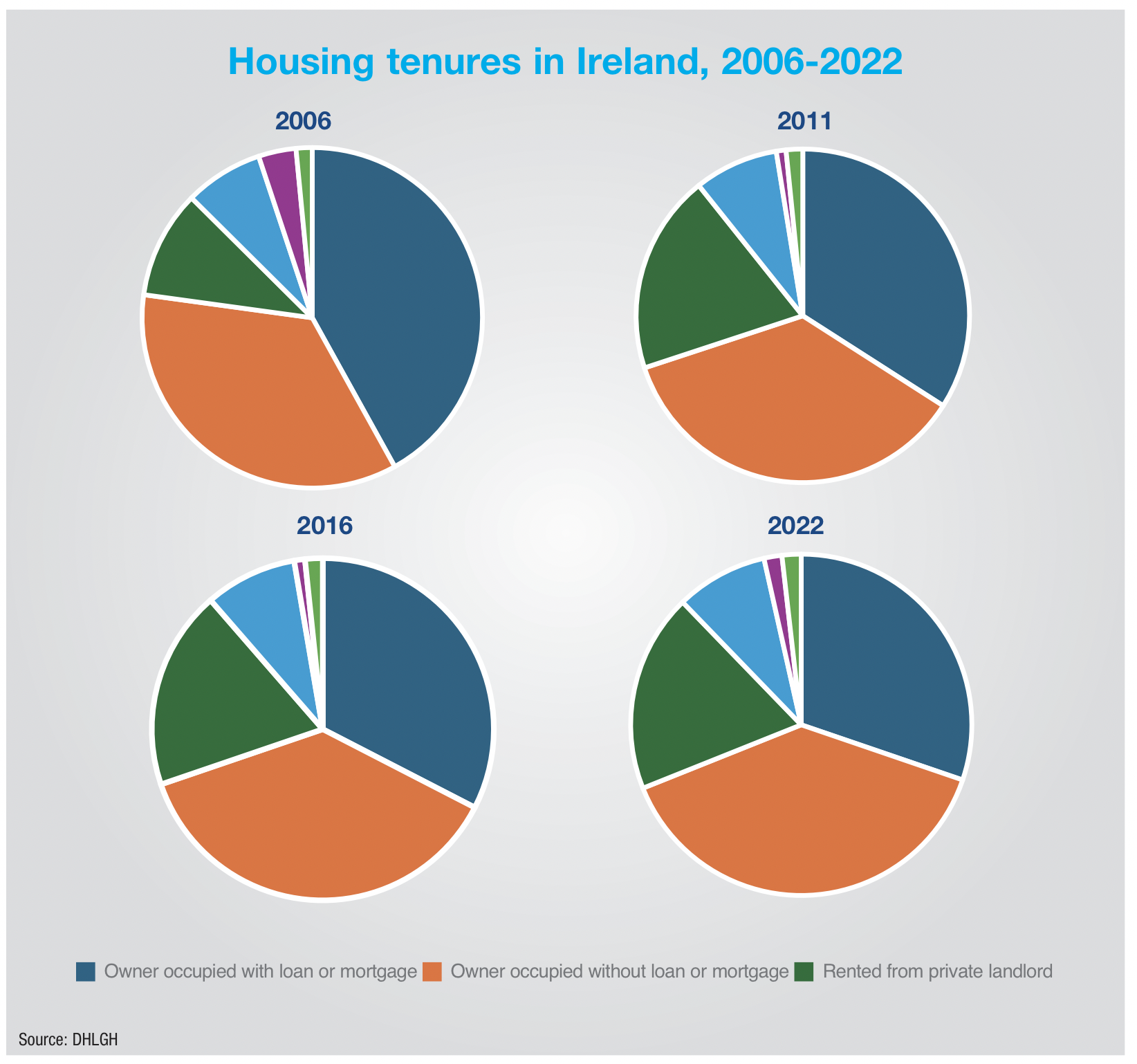The state of the private rental market

The private rental sector, the sector of housing which has seen the largest growth since the 1990s, is facing challenges of meeting the demand for affordable housing, a government review says.
The review, published by the Department of Housing, Local Government and Heritage in July 2024, states that the private rental market plays a “pivotal role” in accommodating over 330,000 households, making up 18 per cent of all housing in Ireland. Since the early 1990s, the sector has grown considerably, largely due to changing demographics, economic migration, and urbanisation.
Despite its growth, the sector faces persistent challenges such as affordability challenges and rising demand. In recent years, rent levels have surged, exacerbating financial pressures on renters. Nationally, new tenancy rents rose by 9.1 per cent as of the fourth quarter of 2023, while existing tenancies increased by 5.9 per cent.
Although rent has risen across the country, the report highlights the stark difference between rents in and outside Dublin. In Dublin, the average rent for new tenancies reached €2,098 per month, compared to €1,280 outside of Dublin. This disparity reflects the city’s concentrated demand and constrained supply, leading to a critical need for policy intervention to address affordability and supply bottlenecks, particularly in urban centres.
Policy recommendations
The review outlines several policy objectives essential for a well-functioning rental market. These include creating economic conditions favourable to investment, ensuring security of tenure, maintaining affordability, enforcing property standards, and implementing effective regulation.
1. Encouraging investment and supply: The review acknowledges that sustaining a functional private rental sector depends on a steady flow of new housing stock, particularly in high-demand urban areas. Housing for All targets an annual delivery of 33,000 new homes, with specific incentives for cost rental schemes. However, inflation in construction costs, high-density planning requirements and a labour shortage in the construction market have presented challenges. As a response, the review calls on government to pursue policies to attract both domestic and international investors to boost the rental market.
2. Affordability initiatives: Aiming to address the affordability crisis, the Government introduced the Cost Rental Scheme, offering below market rates to qualifying tenants. The review recommends expanding eligibility for this scheme to include households slightly above the income limits for social housing. Rent control policies, such as the rent pressure zones (RPZs), are also under evaluation to assess their effectiveness in controlling rents without discouraging investment.
3. Security of tenure: The review encourages the adoption of policies that strengthen security for renters, particularly by reducing no-fault evictions and incentivising landlords to offer longer-term leases, especially in cases where institutional investors own large property portfolios.
4. Property standards: Ensuring the quality of rental properties remains a priority. Local authorities are required to inspect 25 per cent of properties annually to verify compliance with safety and maintenance standards. Furthermore, new energy efficiency standards, starting in 2025, will require rental properties to meet a minimum Building Energy Rating (BER).
5. Strengthening regulation: The review calls for a periodic assessment of the Residential Tenancies Board (RTB) to ensure its effectiveness in handling disputes and enforcing regulations. It also advocates for increased resources and authority for the RTB to monitor and address compliance issues in a timely manner.
Potential policy changes
In response to persistent rental inflation, the report identifies several avenues for policy reform:
- Incentives for long-term investment: Acknowledging the high costs associated with high-density developments, particularly in Dublin, the review recommends incentives for long-term capital investment in the rental sector, including potential tax reforms for non-corporate landlords.
- Revamping rent control: While RPZs have moderated rental increases in certain areas, the review highlights their mixed impact, with instances where they may act as target prices instead of ceilings. The Government recently extended RPZs until the end of 2025 but has committed to a comprehensive review to evaluate their long-term effectiveness.
- Periodic review of the RTB: Recognising the RTB’s critical role, the review suggests routine evaluations to address any operational gaps and to adapt to the evolving needs of the sector.
- Raising awareness and compliance: With 89 per cent of rental properties found non-compliant upon initial inspection, a recommendation is made for the RTB to enhance its educational efforts toward landlords, ensuring better adherence to rental standards and reducing the incidence of disputes.
Overall, in the context of rising rents, limited housing stock, and ongoing regulatory challenges, the review asserts that the private rental sector requires a “balanced approach to support renters and landlords alike”.
The review emphasises that policies should be aimed not only at regulating the market but also at fostering a stable environment for investment, ensuring sustainable affordability, and safeguarding tenants’ rights. By prioritising these policy objectives, the review says that a future revision to Housing for All will aim to create a fair, resilient, and accessible rental market.






